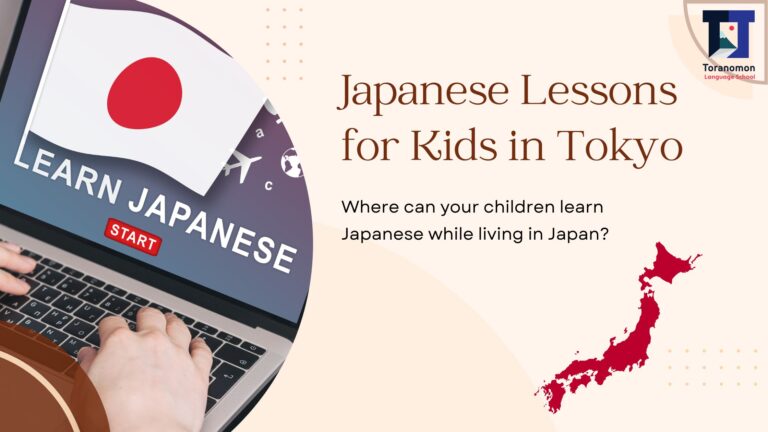Where can your child learn Japanese while living in Japan?
If you have made the big move and are raising your family in Tokyo, you probably want your children to pick up some Japanese. After all, there is no better time to learn a language than when you are young. The best way for your kids to learn Japanese is by enrolling them in a local daycare, kindergarten or school. However, many expat families plan to move back home eventually, so Japanese school might not be the best option for you, as you want your children to be fluent in English, or another home language. That’s fine, they can still develop high level Japanese skills during your time in Japan!
If the kids are under six years old:
If your kids are still not elementary school age, you can try sending them to a Japanese kindergarten. Kindergarten is free and goes from age three to age six. There are three grades, “nensho”, “nenchu” and “nencho”. After they graduate “nencho” in the March of their third year, you can transition to international school first grade in April or September (depending on the school), if this is what you wish. This will give your child fluency in day to day, spoken/colloquial Japanese. They may even learn hiragana and katakana at kindergarten, although not all schools cover this.
While it may be easier for the parent to simply enroll their child in an international daycare, we do recommend the local route as it is an invaluable experience for your child to experience life in another culture, and Japanese kindergarten is really fun, with lots of play and school trips, it is not the rote learning strict atmosphere that you may be familiar with in their schools.
For elementary school children and above:
If you are going the international school route, where can your child learn Japanese?
Of course, all international schools offer some form of Japanese lessons to their students. In our experience, some are much better than others, and student outcomes vary. Some schools prepare students only with basic conversation and reading skills, while others reach intermediate fluency. If you want your child to actually be able to converse in Japanese, and perhaps even pick up literacy skills, it is likely that you will need to supplement the lessons provided by the international school.
So what can you do? How can you ensure that your child comes away from their stint in Japan able to impress back home with their amazing language skills, or even better – with the ability to use their language skills in the future to boost their CV.
Some ideas for your kids to learn Japanese while living in Tokyo are:
- Enroll in an extracurricular like a sport or an arts activity, in Japanese
This will give your child a weekly exposure to a fully Japanese environment. They will probably pick up some situational language that gets used regularly in the activity, along with some casual friendly expressions used among the kids. This will not really help their literacy or academic Japanese, but it is a good exposure.
- Sign up for Japanese lessons for kids
There are surprisingly few options for Japanese lessons for kids in Tokyo. However, TLS does offer some popular children’s Japanese lessons, with options to have classes privately or in a group. Classes like this will teach your child vocabulary, grammar, hiragana, katakana and kanji. Speaking and listening are also covered as good children’s classes are always interactive and student focused. If you are really serious about your child reaching a good level of Japanese fluency, external classes like this are definitely a good idea.
- Holiday programs in Japanese
Another option with a shorter commitment than regular classes is a holiday program run in Japanese. There are camps and sport based programs, like this one. Or there are academic summer programs in Japanese, like these ones at TLS.
- After school care
Did you know that even if your child attends international school, you can still send them to after school care in your local elementary school? It is known as “gakudo”, and any child in the area can attend if there are spaces available. Ask at your local ward office for help with this. Here is one example for Setagaya-ku.
Living abroad is an enriching experience in a child’s life, and learning the language is essential to properly immersing themselves in the local culture, so we highly recommend your child learns Japanese while living in Tokyo. Happy learning! If you need any help with any of the resources listed in this blog, feel free to contact us for assistance.

